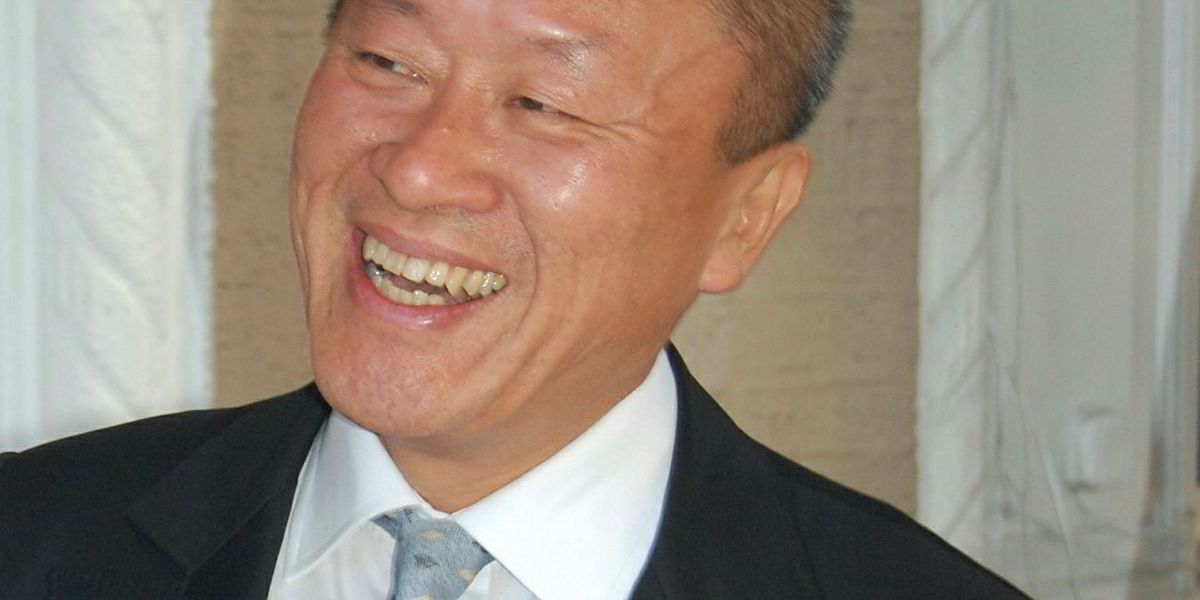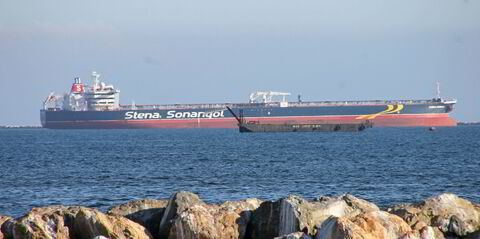Nobu Su's Today Makes Tomorrow (TMT) is fighting its former bankers in Taipei District Court on the suspicion that loan documents may have been forged on at least two of the ships it lost in its drawn out collapse.
The formerly expansive shipowning company is asking the Taiwanese court to “vacate” or declare invalid the penalty interest rates that new noteholders demanded after his original bankers sold off their mortgage rights. The original mortgagees had sold their rights to TMT’s defaulted ships to distressed asset funds managed by Hong Kong’s SC Lowy and New York’s Solus Alternative Asset Management.
But Su, the TMT chairman whose actual name is Su Hin-chi but who is better known outside Taiwan as Nobu Su, is also asking the federal court for the Southern District of New York for “letters rogatory” ordering Solus, Deutsche Bank and three Taiwanese banks to hand over documents in support of the Taipei proceedings, which began in November.
"Many legal documents seem not [to be] true copies nor real contracts," Su explained in an email to TradeWinds. He indicated that the New York action was aimed at papers filed in 2014 Chapter 11 proceedings, with lawyers involved in the transactions especially in mind.
It is not clear whether Su was aiming for compensation for the loss of vessels, merely overpaid interest or some other remedy.
"We cannot comment as the calculation was wrong," he wrote. "It is our interest to find out how banks calculated the interest rates basis on the contracts. Unless we see the true copy of contracts, we cannot decide the course of actions."
But he indicated that he was also challenging the authenticity of documents with other repossessed ships.
Four ships had the same patterns, he said.
The ships in the US action, the 36,800-dwt C Handy and 84,000-dwt B Max (both built 2011), were financed through mortgages to the Taipei-based Shanghai Commercial & Savings Bank (SCSB). The lender sold on a portion of its exposure to two compatriot banks, Chang Hwa Commercial Bank and Hua Nan Bank.
After TMT's 2013 bankruptcy filing, the Taiwanese banks sold their rights to Deutsche Bank, which in turn passed them to the two distressed asset funds.
The new mortgage holders demanded a penalty interest rate on overdue payments of 6% as opposed to Libor plus a penalty rate that would put the total rate at just over 4%. This, the lawyers imply, led to the loss of the ships.
But their client does not recognise the documents, Su's US lawyers said.
"Su further alleges and suspects that the original loan agreements he signed on behalf of B Handy Corp, C Handy Corp, TMT and himself, had been modified, tampered with, and amended unilaterally by SCSB," they told the court. "Su based his suspicions on a number of irregularities he discovered in copies of loan agreements and related documents provided to him by SCSB."
These alleged irregularities include signatures on documents he does not recall.
"Su suspected that SCSB forged his signature on these documents by lifting it from elsewhere and pasting it onto the pages of these documents," Su's lawyers wrote.
He also believes pages have been removed and replaced in otherwise genuine documents.
"[As] a matter of custom and common practice in Taiwan, a single stamp is applied across the adjoining edges of each page in a contract so that each page has a part of the stamp to ensure that no page in the contract can be easily substituted or replaced," his lawyers told the judge.
"Su alleges that certain pages in many of the documents related to the loan agreements, including several signature pages, are missing the crucial stamp that validates [their] authenticity."
Thus, Su has reason to believe that "[documents] furnished to Deutsche Bank and SC Lowy, when SCSB, Chang Hwa and Hua Nan sold their rights, were not the true and correct copies", they wrote.
An SCSB legal department official said the bank would have no comment on the legal dispute.



